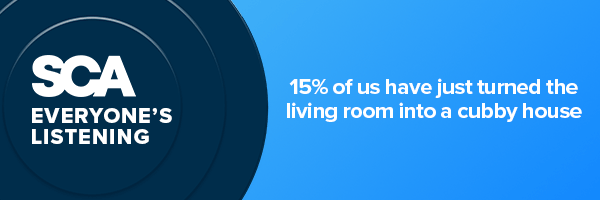Comment from Peter Saxon
The development of self-driving cars is well advanced. Early examples of the software have been fitted to some cars already and in some occasions have been used to disastrous effect. But it’s likely to be years before the average motorist could legally use it. What’s the hold up? Legals.
It’s taking an age to build a new legal structure that will cover a new set of road rules for autonomous vehicles. For example, if two computer driven cars accidentally collide, who’s at fault? Who sues whom?
Until the law is settled in regards to self-driving vehicles it will remain illegal for drivers to engage “auto-pilot” on cars where it is fitted.
Not so in the case of media reform. The newfangled social media giants like Facebook, Google and Twitter have been turning – have turned – the news and information business on its head over the past several years. Meanwhile the laws governing the news business remain rooted, in the 20th Century.
Three years ago, 25 of the captains of all commercial MSM descended on Canberra to effect media reforms that would help them compete with the might of the international interlopers. “We all embrace change, we all embrace disruption,” SCA CEO Grant Blackley told the assembled lawmakers. “But we need to do it on a level playing field. And that’s not the case today.”
Subsequently, the laws that limited reach as well as the number and type of outlets each media operator could own were scrapped. This resulted in a spate of mergers and acquisitions creating bigger and stronger networks but less voices.
Did these new laws help local media compete with the international behemoths? In the same way that platform sneakers might help Grant Denyer beat Ben Simmons at basketball, sure. But a level playing field? There’s a long way to go and many more issues to solve before the little bubble in that particular spirit level settles in the centre – as clearly demonstrated by last week’s Appeals Court decision.
That case started last June in the NSW Supreme Court where a young Dylan Voller, who’d been badly mistreated at Darwin’s Don Dale Youth Detention Centre, sued the owners of The Australian, the Centralian Advocate, Sky News Australia and The Sydney Morning Herald for defamation.
The defamatory comments in question were not made by columnists working for those publications but by anonymous online respondents. Nor were they made on those publications’ own websites but on their Facebook pages.
The media owners argued that since Facebook didn’t allow them to effectively filter comments on its platform, then Facebook should be responsible for content posted on it. But Justice Stephen Rothman rejected that notion and sided with Facebook.
The media companies appealed, and lost, the court awarding a free kick to Facebook and other social media giants.
This is one of those cases where “the Law is an Ass” – completely out of touch in regards to social interaction of people with today’s media. But that doesn’t reflect on Justice Rothman’s judgment. For all we know, he may be a complete luddite or he might spend his spare time writing code and finding hacks for his favourite video games.
Either way, a judge cannot enact new laws. Only parliament can do that. Judges can only apply existing laws to new circumstances. Defamation laws were probably first drafted at a time closer to the invention of the Gutenberg Press than the internet. The legislators at the time could not possibly have imagined the internet and the social media moguls it would spawn. No wonder His Honour was moved to concede that his judgement – a world first – was taking defamation law into “uncharted territory.”
The implications for MSM, that you can be sued for comments made by unknown third parties on a third party website that they, not you, control are enormous. It may mean that MSM will have to close down all its social media pages to avoid getting caught up in a litany (or should that be litigy) of law suits. I’ve personally found Facebook to be harder to get out of than the mafia. As Al Pacino says in The Godfather Part III: “Just when I thought I was out, they pull me back in!”
NINE, which now operates major TV, Radio and Newspaper networks said it has a view to seek special leave to appeal to the High Court. A statement from the company said in part:
“The decision fails to acknowledge that it is Facebook that controls its platform, including that Facebook gives media companies no ability to turn off comments on their pages. It is Facebook that must be held responsible for content posted by its users, not media companies.
“Today’s decision means the media cannot share any story via Facebook without fear of being sued for comments which they did not publish and have no control over.
“It also creates the extraordinary situation where every public Facebook page – whether it be held by politicians, businesses or courts – is now liable for third party comments on those pages.
How Facebook affects defamation law is just one of several issues for radio and other MSM to challenge. Another is the aggregation of MSM’s work and the way that socials profit from it.
It is easy to imagine that the two issues combined could create the perfect storm for radio. Hypothetically, let’s say your station has successfully closed down its Facebook page but then something taken form your website by, say, a listener is disseminated on Facebook without your knowledge or permission. And then a third party, again without your knowledge, makes a defamatory comment about the article, stolen from you, that ends up on Facebook. How can you possibly be held responsible? Under current laws, there’s every likelihood you can and will be.
The overarching issue is, as Mr Blackley says, a level playing field. We may never be able to compete with the social giants’ sheer size and resources but we can’t continue to have Australian laws slanted in their favour too.
So, do we relax the accountability and oversight to which local MSM is bound? Or, if they want to do business in Australia, do we make social media obliged to adhere to a set of laws and codes administered by, say, the ACMA?

Peter Saxon
Subscribe to the radioinfo daily flash briefing podcast on these platforms: Acast, Apple iTunes Podcasts, Podtail, Spotify, Google Podcasts, TuneIn, or wherever you get your podcasts.




